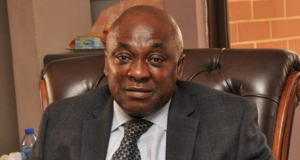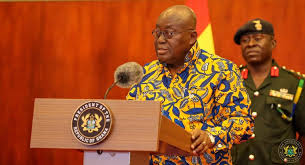 Mr Carlos Ahenkorah, the Deputy Minister for Trade and Industry said the Ministry is in the process of completing modalities for the establishment of the Ghana National Accreditation Service, an accreditation body for conformity assessment activities.
Mr Carlos Ahenkorah, the Deputy Minister for Trade and Industry said the Ministry is in the process of completing modalities for the establishment of the Ghana National Accreditation Service, an accreditation body for conformity assessment activities.
He said the establishment of the body would complete the set of national quality infrastructure institutions in the country, adding that government was committed to approving the National Quality Policy this year.
The Deputy Minister said this on Monday at a two-day training workshop of Resource Persons of the ECOWAS Regional Accreditation System on ISO/IEC 17021-1:2015 in Accra, sponsored by the European Union (EU) and implemented by the United Nations Industrial Development Organization (UNIDO).
The ISO/IEC 17021-1:2015 contains principles and requirements for the competence, consistency and impartiality of bodies providing audit and certification of all types of management systems.
He said the training was timely because it shows the commitment of ECOWAS member states to progressively develop a high sense of quality and protect their markets from sub-standard products.
He said the quest to establish all the units of a quality infrastructure was core to building consumer confidence, competitiveness of industry and most importantly investor confidence, adding that these were development imperatives that should not be underestimated, especially with the implementation of the West African Common Industrial Policy.
“Consumers are becoming more and more sophisticated in their choices of what to buy. They are demanding high quality, environmentally sustainable and safe products. The assurance of these characteristics in a product is what is provided by conformity assessment bodies through inspection, testing, calibration, certification, validation and verification activities,” he added.
Mr Ahenkorah said the development of accreditation bodies in the sub-region was not only an issue of consumer protection and competitiveness but an issue of macro-economic importance.
He stated that it was estimated that Ghana spends close to one million dollars annually to obtain accreditation services from outside the country, describing the situation as one form of capital flight from developing countries.
The Deputy Minister said the phenomenon also means that even for organizations that can afford foreign accreditation services, the situation would increase their cost of service provision, which would be passed on to consumers, and continually increase the cost of goods and services.
According to the Deputy Minister, compliance with quality standards would only be possible if the private sector was capable to produce according to internationally recognized product and quality standards.
He stated that the development of a more positive economic environment would only lead to a growth of intraregional trade, if enterprises were able to produce tradable goods and services.
He commended the EU, UNIDO and ECOWAS for their continuous support in helping to build strong and functional quality infrastructure institutions to improve the competitiveness of products from the sub-region and the quality of life of our citizens.
Mr Fakhruddin Azizi, the UNIDO Representative to Ghana said UNIDO’s involvement in West Africa’s quest for quality stems from the Common Industrial Policy adopted by the West Africa Monitory Union at the end of 1999, stressing that the policy focused on improving competitiveness harmonizing standards and improving intraregional trade.
He said the policy recommended development of quality infrastructure in West Africa so that exporters could comply with the World Trade Organization agreement on technical barriers to trade and sanitary and phytosanitary measures.
Mr Azizi said national, regional and global markets need products and services that were safe and conform to certain standards, or else it would be difficult to access national and international markets.
Source: GNA



